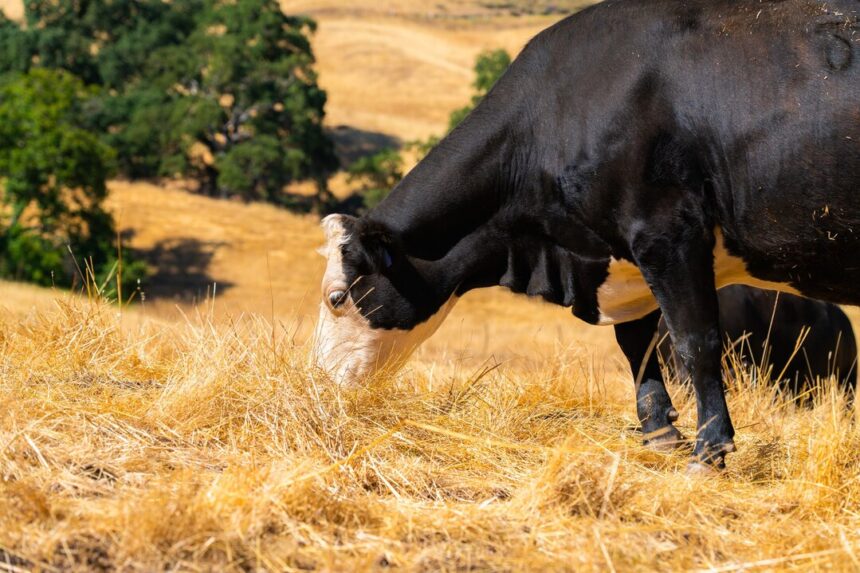Simbra cattle, a hybrid breed resulting from the crossbreeding of Simmental and Brahman cattle, have gained popularity among farmers in South Africa for their excellent meat quality, adaptability to diverse environments, and overall hardiness. If you’re considering venturing into breeding and farming Simbra cattle in South Africa, here are ten essential things you should know to embark on a successful venture:
- Hybrid Vigor and Performance:
Simbra cattle exhibit hybrid vigor, also known as heterosis, which results in offspring with superior traits compared to their purebred parents. This includes enhanced growth rates, improved fertility, and better adaptability to environmental stressors, making them highly desirable for commercial beef production. - Adaptability to South African Conditions:
Simbra cattle are well-suited to the diverse climatic conditions found in South Africa. They thrive in both tropical and subtropical regions, tolerating heat, humidity, and harsh environmental conditions. This adaptability makes them suitable for extensive farming systems prevalent in various parts of the country. - Meat Quality and Production:
Simbra cattle are renowned for their excellent meat quality, characterized by tenderness, marbling, and flavor. Their ability to convert feed efficiently into high-quality beef makes them a preferred choice for beef production enterprises seeking to meet consumer demand for premium meat products. - Breeding Objectives:
When breeding Simbra cattle, farmers typically aim to capitalize on the breed’s desirable traits, including growth rate, carcass quality, fertility, and adaptability. Careful selection of breeding stock and adherence to breeding objectives are essential for achieving desired outcomes in commercial herds. - Genetic Diversity and Herd Management:
Maintaining genetic diversity within Simbra herds is crucial for the long-term sustainability and resilience of breeding programs. Farmers should implement sound herd management practices, including rotational grazing, genetic selection, and disease control measures, to optimize herd performance and health. - Reproductive Efficiency:
Simbra cattle are known for their reproductive efficiency, with cows exhibiting good fertility and maternal instincts. Proper management of breeding programs, including timely breeding, pregnancy diagnosis, and calving assistance when needed, is essential for maximizing reproductive potential and calf crop percentages. - Nutritional Requirements:
Providing adequate nutrition is paramount for the growth, development, and overall health of Simbra cattle. Farmers should ensure access to quality pasture, supplemented with mineral supplements and balanced feed rations, to meet the breed’s nutritional requirements at various production stages. - Healthcare and Disease Management:
Proactive healthcare and disease management are essential for preventing and managing common health issues in Simbra cattle herds. This includes vaccinations, parasite control, regular veterinary inspections, and adherence to biosecurity protocols to minimize the risk of disease outbreaks. - Market Opportunities:
Simbra cattle offer diverse market opportunities for beef producers in South Africa. Their superior meat quality and adaptability to different production systems make them attractive to both domestic and export markets, including feedlots, meat processors, and discerning consumers seeking premium beef products. - Sustainability and Environmental Stewardship:
Sustainable farming practices, including responsible land management, water conservation, and ethical treatment of animals, are essential for the long-term sustainability of Simbra cattle farming in South Africa. Farmers should prioritize environmental stewardship and animal welfare to ensure the industry’s continued success.
Breeding and farming Simbra cattle offer numerous advantages for beef producers in South Africa, including superior meat quality, adaptability, and market competitiveness. By understanding the breed’s characteristics, implementing sound management practices, and prioritizing sustainability, farmers can establish thriving Simbra herds that contribute to the country’s agricultural prosperity and food security.
Join 'Farmers Mag' WhatsApp Channel
Get the latest Farming news and tips delivered straight to your WhatsApp
CLICK HERE TO JOIN






